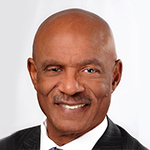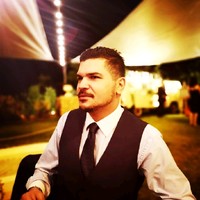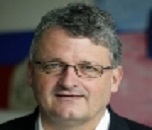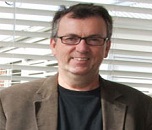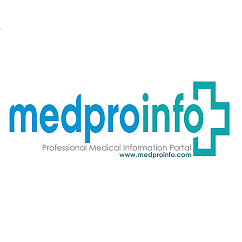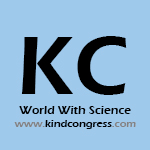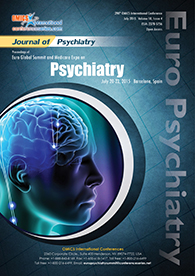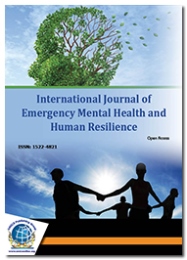Theme: Mental Health and Psychological resilience during Covid 19 Pandemic
Psychiatry Meet 2020
Track 1: Psychiatry and Mental Health
Psychiatry is the therapeutic claim & medical specialty devoted to the finding, avoidance, study, and treatment of the mental issue. It deals with the principal branch of solution concentrated on the analysis, treatment, and anticipation of mental, passionate and behavioral scatters. Abnormalities identified with mood, behavior, cognizance, and observations will lead to the detection of Psychiatry & mental health disorders. Mental health issues may emerge due to stretch, depression, misery, uneasiness, relationship issues, passing of a cherished one, self-destructive considerations, melancholy, enslavement, ADHD, self-harm, different disposition clutters, or other mental sicknesses of changing degrees, as well as learning inabilities.
Track 2: Forensic and Emergency Psychiatry
Forensic psychiatry is a field of psychiatry that deals with the assessment and treatment of mentally disordered offenders and criminals. It is an interface between mental health & Psychiatry. Emergency psychiatry is the application of psychiatry in emergency. The conditions requiring psychiatric interventions may include substance abuse, attempted suicide, psychosis, depression violence & other abnormal behaviors. Forensic psychiatry is like criminology, which encompasses the interface between law and psychiatry including gracious, criminal, remedial, administrative, or authoritative things, and in specialized clinical discussions in zones such as chance appraisal or employment.
Track 3: Child and Adolescent Psychiatry
Child & Adolescent psychiatry is a multi-disciplinary research field which includes the most advanced pediatric researches. It investigates the bio psycho-social factors that influence the development and the course of these psychiatric disorders and treatment responses to various interventions. Psychological disorders found in children, adolescent & their families are mostly challenge-able field of research for young psychiatrists as well as mental health specialists.
Track 4: Geriatric and Adult Psychiatry
Mental disorders in humans with older age are a challenging psychological research for the Geriatric psychiatrists. In developing countries, this field is becoming more needed when the population ages. Adult Psychiatry includes diagnostic evaluation and treatment for a range of psychiatric disorders in adults, including bipolar and uni-polar effective disorders, anxiety disorders, adjustment disorders, intentional disorders, personality disorders, and some psychotic disorders.
Track 5: Drug abuse and Addiction
Drug use & addiction is a common & significant problem, which is affecting our most valuable young generation as well as our society. This field contains disorders including legal and illegal drugs, gambling, sex, and other impulse control disorders. Addiction psychiatrists are substance abuse experts, who generally put their mind to the recent therapies & medications to solve this dangerous problem. A growing amount of scientific knowledge, such as the health effects and treatments has led to advancements in the field of addiction psychiatry.
Track 6: Psychotherapy
Psychotherapy is a way to help people with a broad variety of mental illnesses and emotional difficulties by psychological methods to overcome these mental disorders. It helps to eliminate & control the symptoms, so a person can function better and can increase well-being and healing. It is simply a general term for treating mental health problems by talking with a psychiatrist, psychologist or other mental health providers.
Track 7: Cognitive Behavioral Therapy
Cognitive-behavioral therapy (CBT) is an enthusiastic & resourceful psychotherapy treatment that takes a hands-on, practical approach to solve the human behavioral disorders & improves our mental health. Its main goal is to change patterns of thinking & behavior that are behind people’s difficulties, and also change the way they feel. It is used to treat a wide range of issues in a person’s life, from sleeping difficulties or relationship problems to drug addiction & alcohol abuse or anxiety and depression.
Track 8: Cognition diseases as in various forms of dementia
Neurocognitive disorders deals with the problems in thinking, reasoning, memory & problem-solving. There are major Neurocognitive disorders depending on how severely the symptoms are impacting to a person’s ability & thinking. Factors causing different types of Neurocognitive disorders include metabolic & endocrine conditions, Nutritional deficiencies, substance abuse, trauma & infections.
Track 9: Psychopharmacology
Psychopharmacology is the study of drugs, which induces the changes in human behavior, mood & thinking. These drugs are generally produced from plants, animals & various chemical resources. The action of the drugs leads to a specific interaction between the medicines and target sites or receptors. Despite of the psychological & physical side effects, researchers are very much interested in a wide range of drug classes such as: - antidepressants & stimulants etc.
Track 10: Psychosomatic disorders and medicine
It is believed that, some physical diseases like pain & high blood pressure etc. happens due to the stresses in everyday life. These psychosomatic disorders affect every individual of the earth causing a serious damage to the mental health. Researchers has been putting their interests in preparing psychosomatic medicines to bring a graphical change in fast heart rate, sick feeling (nauseated), shaking (tremor) sweating, dry mouth, chest pain, headaches, a knot in the stomach, fast breathing.
Track 11: Neurodevelopmental disorder
Neurodevelopmental disorder is a group of disorders, which affect the development of the nervous system leading to abnormal brain function which may affect emotion, learning ability, self-control & memory. These Neurodevelopmental disorders tend to lasts for a person’s entire lifetime.
- Autism spectrum disorder
- Asperger’s’ syndrome
- Pervasive developmental disorder not otherwise specified (PDD-NOS)
Track 12: Management and treatment of Psychological Syndrome
Psychological syndrome deals with the different types of symptoms found in mental health. Although psychiatric medications don’t cure mental illness, but they can significantly improve symptoms. Medicines like antidepressants, anti-anxiety, anti-psychotic, mood stabilizing & stimulant medications are used as the effective drugs to improve mental health & psychological syndrome.
Track 13: Neuronal Functions and Disorders
The neurons are the signaling organs, which receive signal, Integrate incoming signals, communicate a signal to the target cell. It all takes place by a cell body called SOMA, which contains the cell nucleus. When those soma nerves get injured or destroyed, neurological disorders arise. These soma cells mostly control the breathing, swallowing, walking and speaking. Brain Mapping, Cyberknife, Deep Brain Stimulation, Gamma Knife are the mostly used methods to maintain neural disorders.
Track 14: Sleeping Disorder and Treatment
The main vital role of sleep is to solidify & consolidate our memories. Healthy sleep is necessarily required to retain all the information & learning skills to thrive in life. Sleeping disorder normally happens due to too much mental stress & pressure. The treatments people prefer in curing the sleeping disorders are taking sleeping pills. Melatonin supplements, Allergy or cold medication medications for any underlying health issues, breathing device or surgery (usually for sleep apnea) and a dental guard (usually for teeth grinding).
Track 15: Stress, Anxiety and Depression Management
Depression and Anxiety are two different medical conditions but their symptoms, causes, and treatments can often overlaps each other. Now a day’s depression is a typical yet however serious state of mind issue. It causes serious indications that influence how one feels, thinks, and handles every day exercises. Recent studies indicate that depression occurs more often in women than men. In men it manifests often as anger, tiredness and irritability. They may show more reckless behavior and abuse alcohol and drugs. In women depression tends to manifest as worthlessness, sadness and guilt.
Scope and Importance:
One in four individual within the globe will be affected by mental disorders at a few point in their lives. Around 450 million individuals right now endure from such conditions, setting mental disorders among the driving causes of sick health around the world. Medicines are accessible, but about two-thirds of individuals with a known mental clutter never look for our offer assistance from a proficient. Disgrace, segregation and disregard anticipate care and treatment from coming to individuals with mental health, says the World Health Organization (WHO). Where there's disregard, there's little or no understanding. Where there's no understanding, there's disregard. So it is truly vital to have a brush up on this theme.
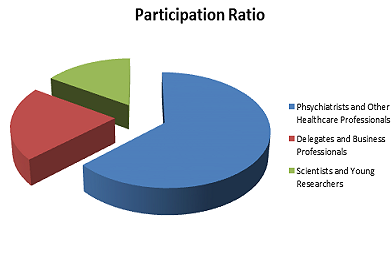
Top universities globally working in the field of Psychiatry & Mental Health
- University of Cambridge
- UCL
- KCL
- University of Edinburgh
- University of Manchester
- Cardiff University
- University of Vermont
- University of Amsterdam
- Ghent University
- Maastricht University
- University of Melbourne
- University of Queensland
- University of New South Wales
- University of Adelaide
- University of Sydney
- Australian National University
- Monash University
- Macquarie University
- University of Hong Kong
- University of British Columbia
- Dalhousie University
- Mount St. Vincent University
- St. Mary's University
Countries which have most impact on Mental Health:
Although mental health affects many people around the world, there is often not adequate provision for those suffering from it. In countries such as Tajikistan and Ghana, mental health spending is lower than $2 (£1.30) per capita compared with $330 in Sweden. However, it is not just about spending. Figures released by WHO show that many of the countries most affected by mental health are not among the worlds poorest.
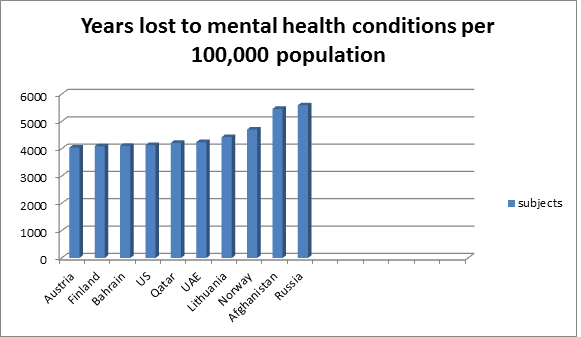
The graph shown below clearly shows the percentage of people who suffer from different mental disorders in each age group. Anxiety disorders happen when a person has severe dread or fear of a situation, the situation depends on the type of anxiety disorder the person has. Affective disorders are otherwise known as mood disorders - Bipolar disorder, depression, OCD, PTSD schizoaffective disorders and more. Substance use disorders- when people experience severe changes in their behavior due to use or overuse of some substances.
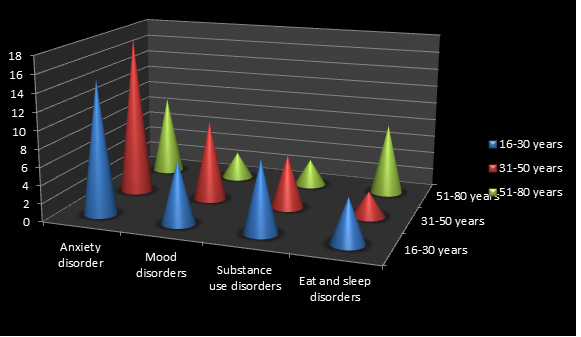
Psychiatry Associations involved in innovative techniques & researches:
- American Association for Geriatric Psychiatry
- American Osteopathic Board of Neurology and Psychiatry
- Association for the Advancement of Philosophy and Psychiatry
- Association for the Treatment of Sexual Abusers
- Chinese Society of Psychiatry
- European Federation of Psychiatric Trainees
- Indian Psychiatric Society
- Institute of Psychiatry and Human Behaviour
- International Association for Child and Adolescent Psychiatry and Allied Professions
- International Early Psychosis Association
- International Psychopharmacology Algorithm Project
- International Society for Affective Disorders
- International Society of Psychiatric Genetics
- Psychiatric Genomics Consortium
- Royal Australian and New Zealand College of Psychiatrists
- Royal College of Psychiatrists
- Taiwanese Society of Child and Adolescent Psychiatry
- World Psychiatric Association
1. Antidepressants & psychiatric medications
Antidepressants are Specific serotonin re-uptake inhibitors (SSRIs), which are a course of upper arrangements supported for the treatment of certain mental disorders. They are most routinely utilized for debilitation, but may as well offer help manage signs of uneasiness disarranges, tallying obsessive-compulsive clutter, post-traumatic thrust clutter, or social uneasiness clutter. In a couple of events, they have in addition been utilized to treat impulse-related disarranges like anorexia or trichotillomania (hair-pulling disorder) though demonstrate of their ampleness for these disarranges is mixed, and they are not a first-line treatment in various cases.
2. Global Headache for ASD (Autism spectrum disorder)?
Autism spectrum disorder is a complex developmental condition that includes major challenges in social interaction, non-verbal communication & restricted/ recitative behaviors.
Keys to remember:
- Treatment can help people to avoid this disease, but this disease can’t be cured.
- Lab test or imaging rarely required
- Chronic can lasts for lifelong
ASD mainly impacts the nervous system & affects the cognitive, emotional, social & physical health of the affected individuals.
Symptoms overview:
- Difficulty in communication with other people
- Restricted interests & repetitive behaviors
3. Why should we care for our Mental Health and Psychology?
Mental health includes our psychological, emotional and social health, which impacts our feeling, thinking and behavior every day. Our mental health also contributes to our choice making process, how we adapt with stress and how we relate to others in our lives etc. five major reasons that influence us to care for our Mental Health & Psychology.
- Better Physical & mental Health
- For improving Productivity and Financial Stability
- Less Strain on the Family
- Avoidance of Crime and Victimization
- A Longer, Happier Life
Conference Highlights
- Psychiatry & Mental Health
- Forensic and Emergency Psychiatry
- Child and Adolescent Psychiatry
- Geriatric & Adult Psychiatry
- Drug abuse & Addiction
- Psychotherapy
- Cognitive Behavioral Therapy
- Cognition diseases as in various forms of Dementia
- Psychopharmacology
- Psychosomatic disorders & medicine
- Neurodevelopmental disorder
- Management and treatment of Psychological Syndrome
- Neuronal Functions and Disorders
- Sleeping Disorder & Treatment
- Stress, Anxiety and Depression Management
To share your views and research, please click here to register for the Conference.
To Collaborate Scientific Professionals around the World
| Conference Date | June 25-26, 2020 | ||
| Sponsors & Exhibitors |
|
||
| Speaker Opportunity Closed | |||
| Poster Opportunity Closed | Click Here to View | ||
Useful Links
Special Issues
All accepted abstracts will be published in respective Our International Journals.
Abstracts will be provided with Digital Object Identifier by



